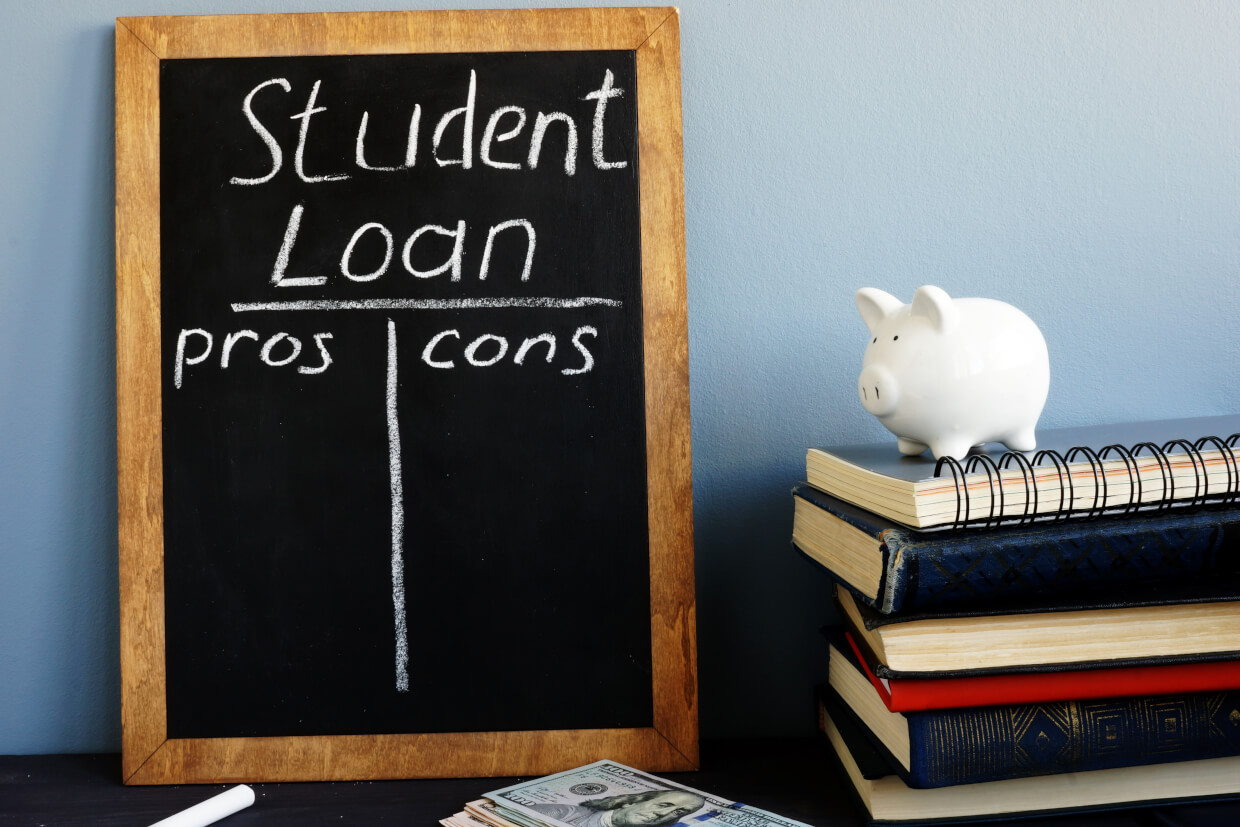Paying for college is expensive! Which means a lot of students end up with student loan debt to complete their degree. Recent grads fret the thought of having to pay back their student debt and fear that their loan history may negatively affect their credit. But don’t worry! We’ll break it down for you. This guide helps explain the relationship between student loans and credit.
There’s no one single way student loans affect your credit. As long as you’re current on your student loan payments, it may even work in your favor. While on-time payments could have a positive impact on your credit score, late payments or no payments at all, have the reverse effect.
How your student loans could positively affect your credit
Student loans work similarly to most other loans. If you pay on time, it helps to establish credit and should increase your score. These are the areas in which your student loans may affect your credit:
- Payment history
- Credit History
- Credit Mixture
Did you know your payment history accounts for up to 35 percent of your entire credit score? Which means, that if you’ve been paying your student loans on time, you’ve established years of good payment records – not to mention, a long credit history. Furthermore, credit history accounts for 15 percent of your credit score. Lastly, your student loans are good for your credit mixture. Which may consist of credit cards, student loans, auto loans, and/or mortgage.
When your student loans could have a negative effect
Remember how paying your student loans on time could increase your score? Similarly, late payments could decrease your credit score. This is how student loans may hurt your score:
- Late payments
- Defaulting on your loans
For federal student loans, it takes about 90 days until your servicer reports late payments, which is when you first notice a change in your credit score. For private student loans, lenders can report late payments after 30 days. However, a default has the most tremendous effect on your credit. If you default on your loans, a collection agency takes over your debt. Which means, it’ll stay on your credit report for up to seven years. Additionally, it signals to lenders that you fall under the risk category of borrowers.
How to avoid late payments or a default
If you’re struggling to keep up with your student loan payments, find out if you qualify for an income-driven repayment plan, which could lower your monthly payments. Keep in mind that terms and conditions often differ depending on the plan. The amount you’re expected to pay in an income-driven plan is based on how much you make, among other factors. If you
Click below to get your questions answered about your student loans.
References
https://www.nerdwallet.com/blog/loans/student-loans/do-student-loans-affect-your-credit/
https://studentloanhero.com/featured/do-student-loans-affect-credit/




Leave a Reply